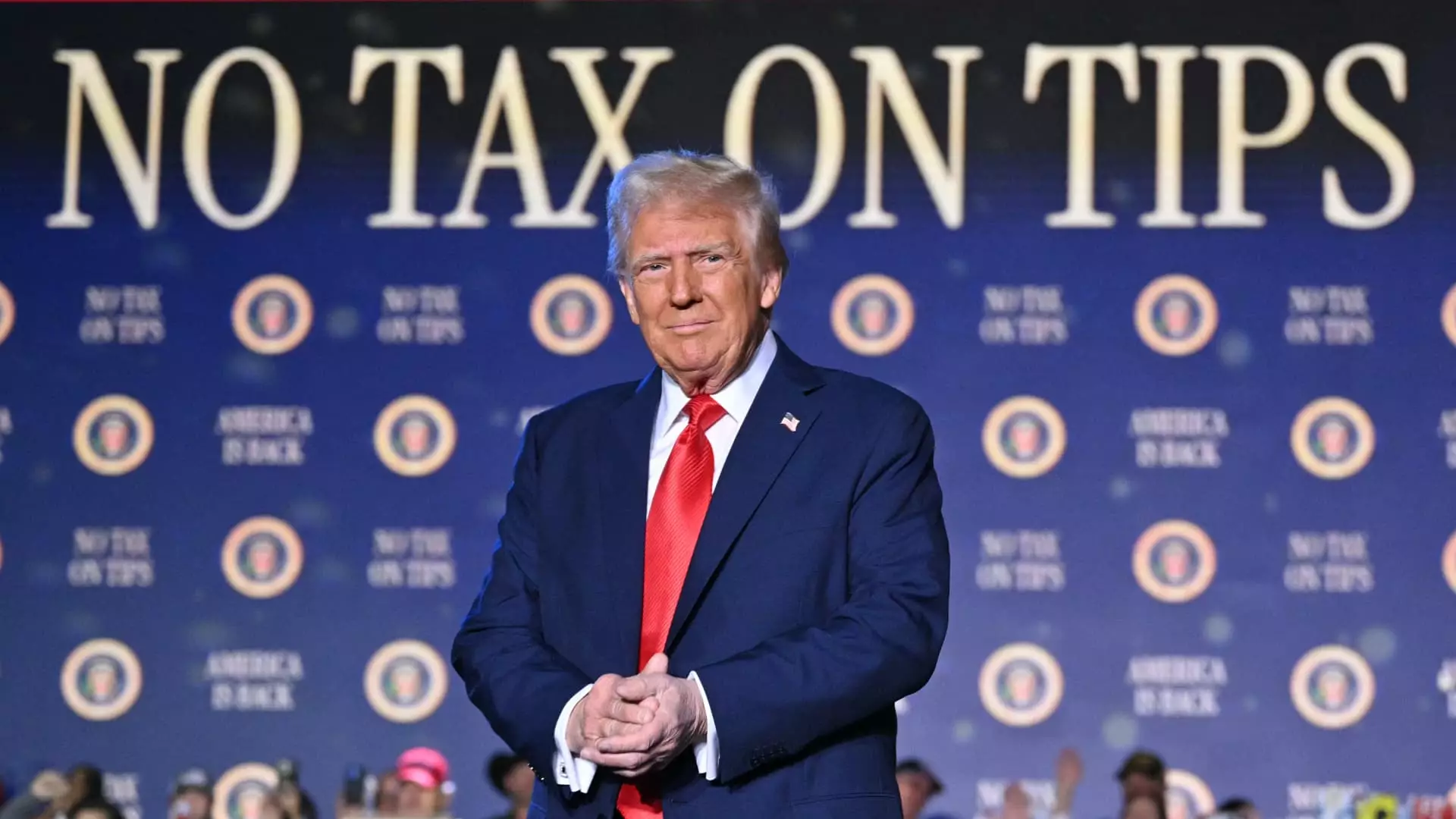The recently enacted “big beautiful bill” claimed to usher in a new era of relief for low and middle-income workers—particularly those earning tips. Its centerpiece, the so-called “no tax on tips” provision, immediately sounded appealing, promising a break from the tax burdens that often weigh heavily on service sector employees. However, beneath this alluring promise lies a complex, perhaps even misleading, reality that reveals how policy often masks its true impact behind vague language. Despite the bill’s claim, tipped workers are still subjected to taxation; what they gain is a limited deduction—up to $25,000—rather than an outright exemption. This nuanced distinction is critical, as it exposes the gap between political rhetoric and practical, real-world benefit. It is a stark reminder that legislative language often prioritizes appealing soundbites over substantive change, especially when the actual impact is marginal at best for those it aims to help most.
The provision’s design raises questions about fairness and inclusivity. By setting income thresholds—phasing out once an individual’s adjusted gross income exceeds $150,000—it subtly excludes many lower and middle-income workers who rely on tips for survival. The ambiguity about qualifying occupations further complicates the landscape. Certain professions, like musicians or performers, appear to be excluded outright, suggesting that the legislation caters more to certain economic classes or industries rather than serving as an egalitarian tax relief measure. There’s an underlying sense that this policy, while framed as a boon for workers, subtly favors higher-income earners or certain sectors, revealing a layer of political calculus rather than genuine concern for the working class.
The Mechanics and Misconceptions: What the Legislation Truly Changes
The law’s language about “qualified tips” is, to say the least, ambiguous. It stipulates that tips must be voluntarily given and honestly reported, but in practice, this is far from straightforward. Many workers know all too well that a significant portion of tips often goes unreported, especially with cash gratuities that are easy to conceal from employers and tax authorities. This legal requirement to report tips compounds the problem: workers are told they need to report their earnings properly, yet systemic issues like underreporting and the proliferation of gig economy transactions create significant gaps in compliance.
From a policy perspective, the IRS’s role becomes crucial, as clarifying which occupations qualify and how to handle unreported tips can determine whether workers truly benefit from this legislation. However, the looming uncertainty and delays in guidance suggest that many workers might never fully realize these purported benefits. It is also noteworthy that the legislation’s reliance on employer-reported income, through forms like W-2 or 1099, ignores the reality of informal financial exchanges and under-the-table gratuities, which form a substantial part of tip income. As a result, the “no tax on tips” slogan becomes more of a political rallying cry than a practical program that meaningfully alleviates the tax burden for those who need it most.
The Broader Economic and Social Implications
Beyond the technicalities, the broader implications of this legislation reveal the deep inequalities ingrained in our tax system. By focusing solely on a narrower deduction rather than an outright exemption, the bill essentially perpetuates existing disparities. Wealthier workers who can maximize their earnings and strategically report tips will benefit more from these provisions than those in the lower income bracket, who often have less capacity for tax planning or compliance.
Furthermore, the bill’s focus on occupational eligibility and reporting thresholds highlights an overarching tendency in policy—favoring those already positioned in the formal economy while leaving behind gig workers, cash-heavy service employees, and others operating in less transparent environments. This creates a two-tier system where some workers are granted a marginal tax benefit, while others are effectively locked out, further entrenching income inequality.
Additionally, the policy reflects a political maneuver—masking small, incremental changes as meaningful reform. It appeals to a broad audience by tapping into the sentiment of relief, yet the actual financial difference remains minimal for most workers. It’s a classic case of legislative language designed to placate rather than genuinely transform the tax landscape. The intention might be to create a perception of progress without fundamentally addressing the systemic issues associated with tipped income and tax fairness.
In the end, this legislation underscores the importance of scrutiny and skepticism. Policymakers often craft laws that appear generous on paper but reveal their limitations upon closer examination. It’s vital for taxpayers and advocates alike to look beyond the rhetoric and recognize that true economic justice requires substantial reforms—rather than superficial tax deductions—that acknowledge and address the realities faced by millions of workers operating in the shadows of the formal economy.

